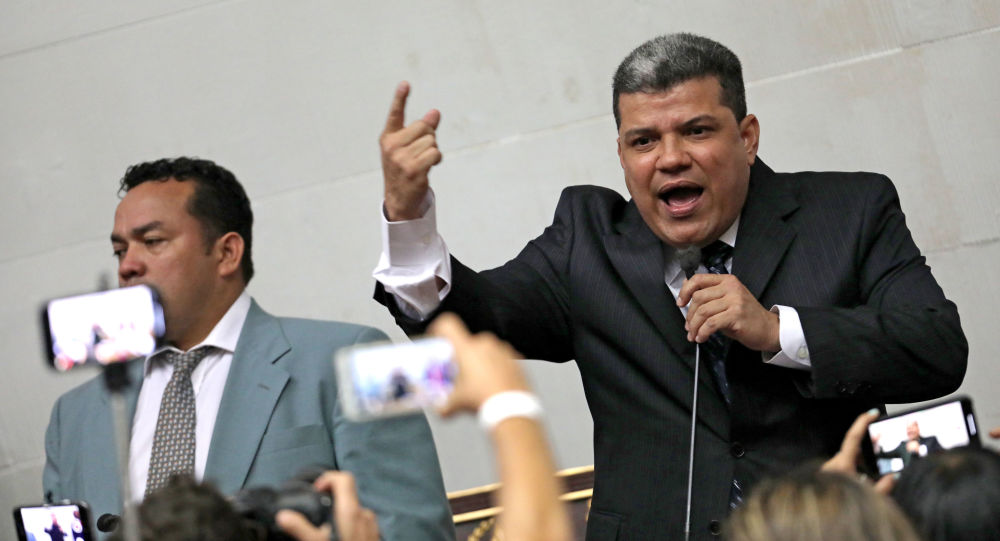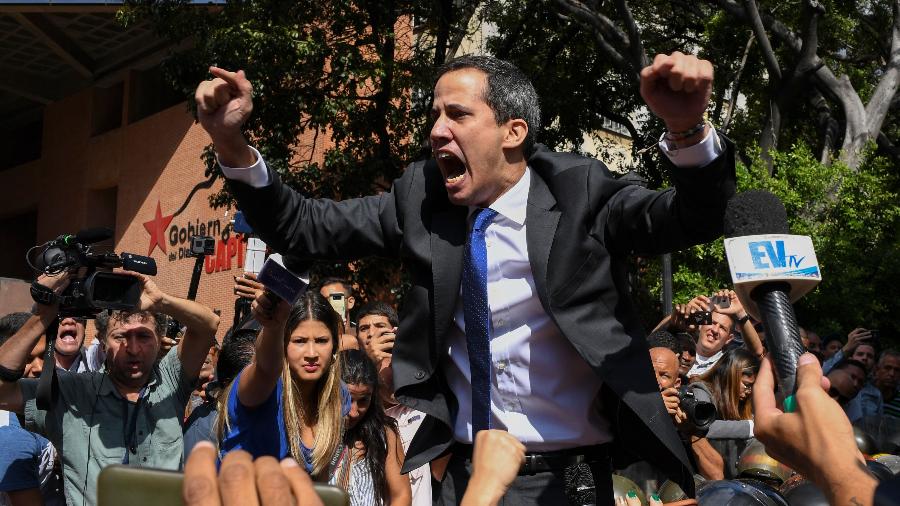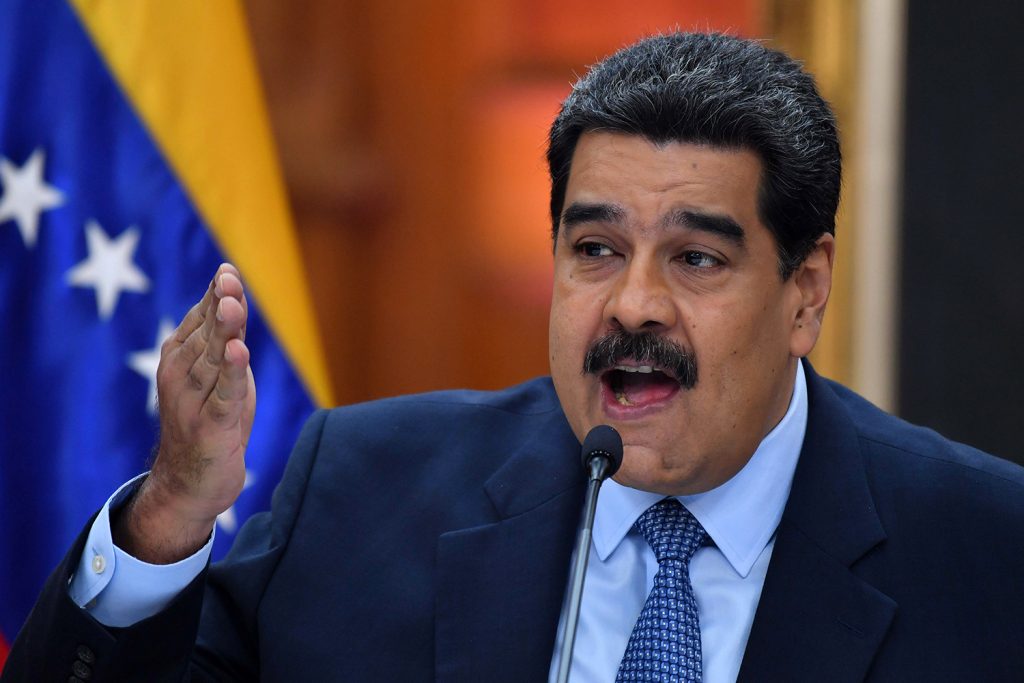RIO DE JANEIRO, BRAZIL – Following the election of a new presidency of the Venezuelan National Assembly, Juan Guaidó, the former incumbent, voted on a parallel committee under his leadership.
At an improvised meeting of opposition deputies in the building of the daily ‘El Nacional’, which is critical of the government, he also had himself re-elected president of the parliament on Sunday.
It is said that 100 opposition deputies voted for him, including members of the 16 de Julio Group (“16th of July”), which has hitherto been equally critical of President Nicolás Maduro and Guaidó. Previously, opposition politician Luis Parra had been appointed Guaidó’s successor in a scandalous session in the National Assembly.
“I am grateful for the honor you have bestowed me”, Guaidó said minutes before his re-election. According to his own statements, he himself voted to extend his term of office. “I swear before God and before the Venezuelan people to uphold this Constitution and the duties associated with the office of Speaker of Parliament and Interim President,” he said after the vote.
Guaidó had appointed himself interim president following his election a year ago, arguing that his role at the head of Parliament justified this. He is recognized by some 60 states, most of them Western and right-wing Latin American governments.

Juan Pablo Guanipa of the Justice First Party (Primero Justicia), whose immunity had been waived by the Supreme Court, and Carlos Eduardo Berrizbeitia of the Project Venezuela Party (Proyecto Venezuela) were elected first and second vice presidents respectively at the parallel session.
Previously, Guaidó had lost his office with the election of Parra as the new President of Parliament. In addition to Parra, two vice presidents had been elected in parliament, also from opposition ranks.
These are Franklin Duarte of the Christian Democratic Party (COPEI) and José Gregorio Goyo Noriega of Guaidó’s Popular Volition Party (Voluntad Popular). The minority faction in the National Assembly, the Patriotic Bloc, the government’s party alliance, had not nominated its own candidates.
The US government threatened further sanctions against the government of President Maduro after Sunday’s double election. Washington would step up economic and diplomatic aid to Guaidó’s camp, according to reports from this side.
“The US will do more to help the National Assembly and its legitimate leadership by increasing pressure against the dictatorship, its leaders and allies inside and outside Venezuela,” said US Special Envoy to Venezuela Elliott Abrams.
Meanwhile, Russia expressed its support for the election of the new president of the National Assembly. With the election of Parra, Venezuela had returned to constitutional order. “We consider the election of a new parliamentary leadership to be the result of a legitimate democratic process that fosters a return to constitutional order,” the Russian foreign ministry said in a statement.

However, Guaidó’s statement that he and his comrades-in-arms had been excluded from the constituent session of the National Assembly caused ongoing debate. The former incumbent attempted to climb over the fencing outside the parliament building on Sunday.
Government camp representatives then confirmed that Guaidó could have attended the meeting unhindered. In view of the threat of defeat, however, he had staged a scandal.
In an interview, opposition deputy Williams Dávila had indeed confirmed that there was free access to the plenary session. In a video, a national guard can be heard asking the former President of Parliament to use the main entrance.
However, Guaidó refused and insisted on entering the Parliament with Deputy Gilberto Sojo, who had been stripped of his mandate by the judiciary.
“Guaidó was not allowed to climb over the bars because he would have had no problem going through the main door of the National Assembly,” wrote former Colombian presidential candidate Gustavo Petro in an ironic commentary on Twitter.
Petro criticized Latin American media, from which Guaidó’s version was indiscriminately adopted. “However, they were not capable of denouncing the bloody coup d’état in Bolivia,” said Petro, who lamented a “crisis in Latin American journalism”.

Argentina’s new center-left government was more critical of the events in Caracas. “Preventing the work of parliament by force implies dooming oneself to international isolation,” it said in a statement by the foreign ministry.
The German government supported Guaidó on Monday. Parra’s appointment had been made contrary to the rules of procedure in parliament, said the Foreign Office’s deputy spokesman, Rainer Breul.
“This was an attack on Parliament’s democratic rights”, Breul said at the federal press conference. Meanwhile, the European Union criticized “serious irregularities” in Parras’ election. The parliamentary rights had been disregarded.
As a result, the EU continued to regard Guaidó as “legitimate president of the parliament”. Neither the German government nor the EU explained which irregularities were being called into question.

